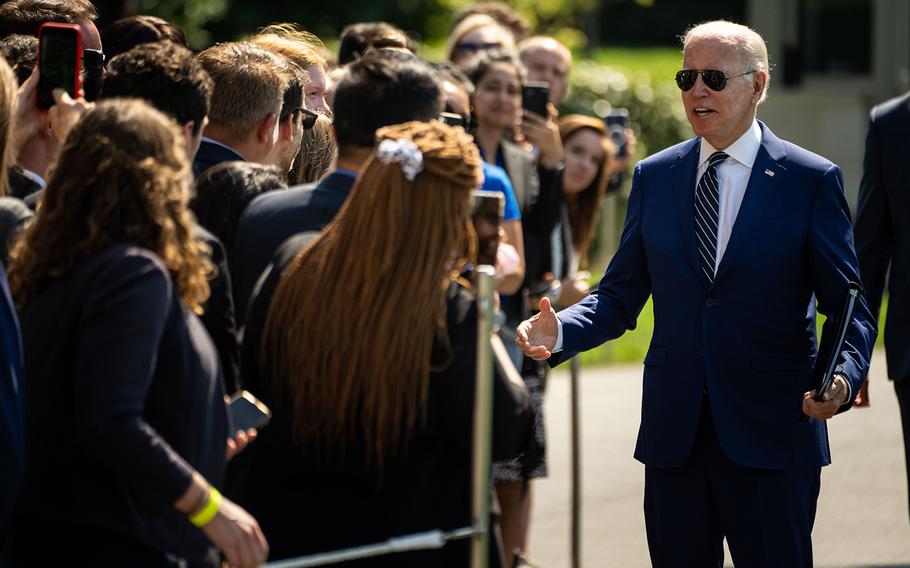
President Joe Biden greets guests after disembarking from Marine One, returning to the White House from Rehoboth, Del., on the South Lawn of the White House on Aug. 24, 2022, in Washington, D.C. (Kent Nishimura, Los Angeles Times/TNS)
President Joe Biden’s decision to forgive some student loans has generated more bad arguments for and against the plan than perhaps any policy decision in years. Among the dubious takes, my current favorite is the notion that loans shouldn’t be forgiven because some recipients went to Ivy League schools. A close second is an argument in favor of Biden’s plan noting that millions of small businesses had pandemic loans canceled, ignoring that those loans were designed to be forgiven and weren’t so much loans as a means of keeping the economy from imploding.
Of course, bad arguments don’t tell us whether a policy is good or not.
What fever-pitch rhetoric combined with poor logic do tell us is that the decision sparked strong feelings. That alone could explain why Biden chose to move forward with the plan and why Republicans are opposing it so fiercely. Politicians don’t always read the mood accurately; the truth is that very few people get riled up about public-policy decisions, especially ones that don’t affect them personally. Unless, that is, their party works hard to get them upset in the first place.
So a lesson from the student debt debate is that politicians are always looking for policy questions that will engage their supporters. As long as the things they identify are genuine policy problems that need solving (not always the case), it’s one good way that representative democracy works, by giving politicians strong incentives to attempt to fix things people care about.
The loan program also is a reminder of the lengths to which most presidents will go to keep their campaign promises. As political parties scholar Seth Masket puts it:
“Just as appointing [Ketanji Brown Jackson] to the [Supreme] Court was fulfilling a promise Biden made to [Rep. James] Clyburn, student debt relief is fulfilling a promise Biden made to [Sen. Bernie] Sanders. More ways the 2020 Dem nomination contest continues to define this administration.”
In this era of partisan presidencies, roughly since the Ronald Reagan administration, those promises often are made as part of the process of winning the party’s nomination. Sometimes, it takes the form of explicit commitments to various important people and groups. At other times, it’s more subtle, with the candidates altering their campaign policy rhetoric to more closely match that of key groups. Either way, what happens in nomination campaigns is critically important because it renegotiates the party’s policy positions and priorities — and that generally matters more, over the long term, than which candidate happens to win.
Of course that means that policies are often political in that they are passed in order to benefit the coalition of the party in office — or at least in response to groups within that party with strong feelings about the policy in question. That, too, is a perfectly valid way for a democracy to work. That’s especially the case when it’s combined with an important constraint against parties simply rewarding their strongest supporters: If they ignore most voters they risk losing future elections.
Looked at that way, the key job of the president isn’t searching for good policy. Instead, it’s a process of balancing good party management through policy choices without alienating too much of the rest of the electorate. Which is why good presidents are more likely to be master politicians than they are policy experts.
Jonathan Bernstein is a Bloomberg Opinion columnist covering politics and policy. A former professor of political science at the University of Texas at San Antonio and DePauw University, he wrote A Plain Blog About Politics. This column does not necessarily reflect the opinion of the editorial board or Bloomberg LP and its owners.